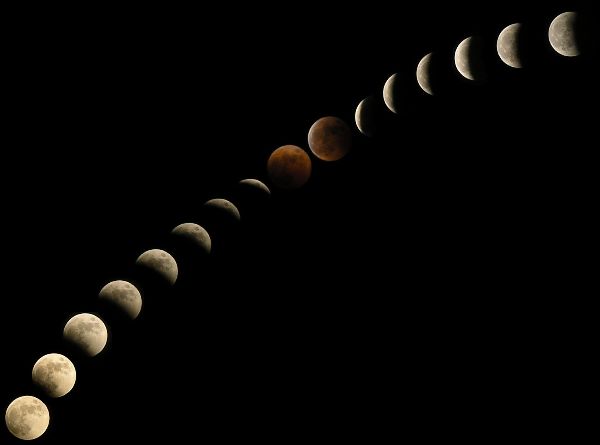
My dad, Leon, had over his adult life a number of hobbies, including politics, watching war documentaries (i.e. "Air Power" and "Victory at Sea"), stock market investing, checkers, shooting animals, Hamm radio operations, puttering about his workshop, singing, cattle ranching, ping-pong, Lawrence Welk shows, mathematics, and science. He never graduated from college, but he was an intelligent, well educated man of wide-ranging interests.
One way his science allure was manifest for me was through the infectious absorption he had with astrophysics. Whether he was pointing out the meteors that occasionally would race across an arc of night sky, discussing relativity, how light was the fastest thing in the universe, the curvature of space, or the flexibility of time, noting the periodic intrusion of comets into our fields of view, the phases of the Moon and why it looked that way from our vantage point, acknowledging the Soviet firsts in putting satellites into Earth orbit, avidly following the progress of our own space program and Moon missions, keenly following along as NASA probes investigated distant parts of the Solar System, or watching, night after night, the PBS broadcast series, "Cosmos," famously narrated by Carl Sagan, Dad communicated his enthusiasm for the fascinating and much larger realm surrounding our third planet from the Sun.
Along with some of my siblings, I was far from immune to this approach to That Which Is, and soon found myself likewise absorbed with these and other things in the fields of astronomy, physics, or the cosmic realm, and with philosophical questions about the origins of everything, possible other intelligence somewhere out there, the potential for time travel (if only via looking with more and more refined methods of seeing into the distance, which was also the far past), etc.
One summer night, when I was only four or five and we lived in Falls Church, VA, where our backyard was large and treeless so that we could often see much of the bowl of sky, Dad got me up after having already fallen asleep, and bid me join him, still in my pajamas, out on the concrete back porch to watch the Moon as something strange and wonderful was about to happen to it.

And so I saw my first colorful lunar eclipse. While the Moon began to disappear and then changed color, as the eclipse became total, then gradually reappeared and ultimately returned to normal, Dad explained what was happening. I have not looked at the celestial realm the same since. Among other insights, implicit in his account was the extraordinary coincidence that, though the three spheres are of course much different in size, the distances between the Sun, Earth, and Moon are precisely such that, every few years, each to our view perfectly blocks out one of the others.
Besides spectacular eclipses, in his time my dad, who was born in 1912 and died in 1995, was around for a rather dramatic array of astronomical and related events. My mom, Julia, my sister and brothers, and/or I were able to share in several of those that marked his more than eight decades' lifespan.
Here is but a sampling:
While it can be humbling to dwell much on the vast forces and dimensions of space, even amateur pursuits related to the science of astronomy may prove highly rewarding. Every now and then, they may be quite awe inspiring and exciting as well. Pursuit of this science with our kids, grandkids, nieces, nephews, or students can also nurture young people's natural inquisitiveness. That it may lead to rich bonding experiences is a sweet icing on the cake.
(Many thanks to Val for the illustrative series of eclipse photos. They were taken one night in 2004 using a tripod and a Pentax digital Optio 450 camera.)